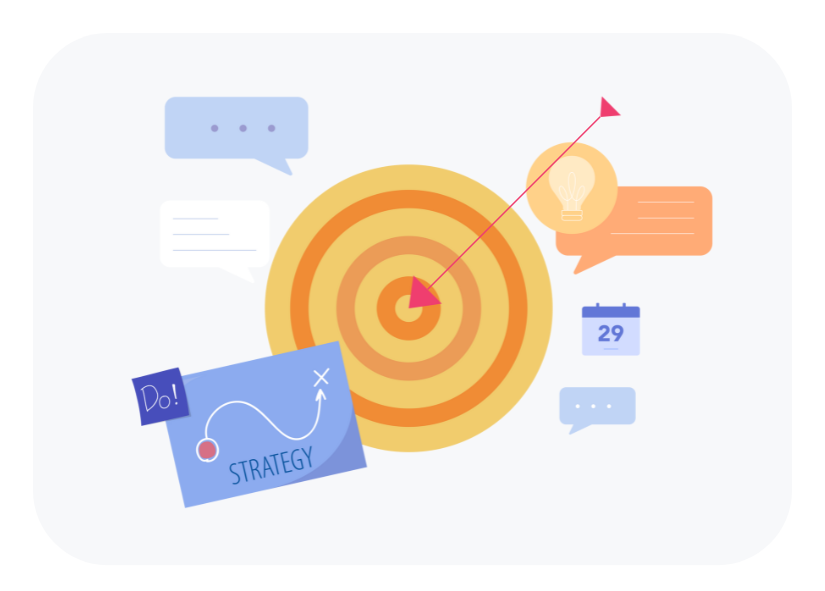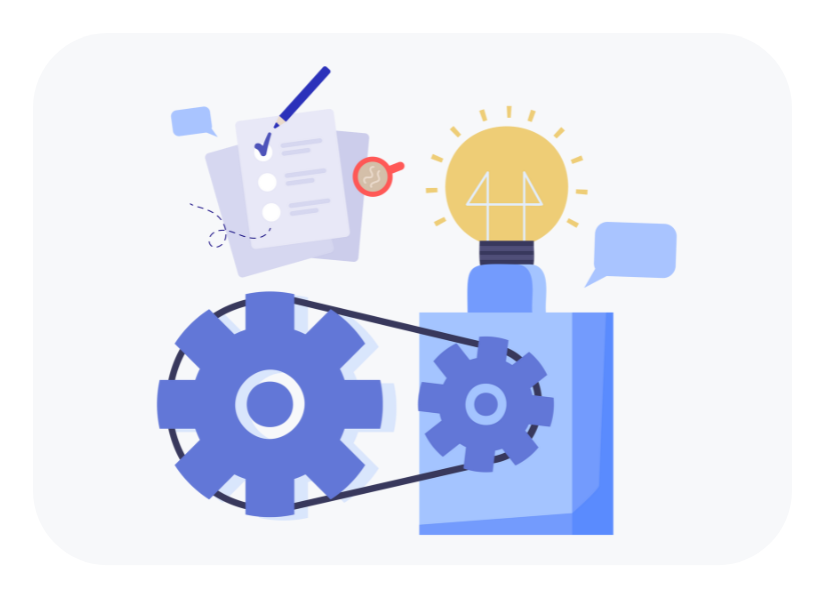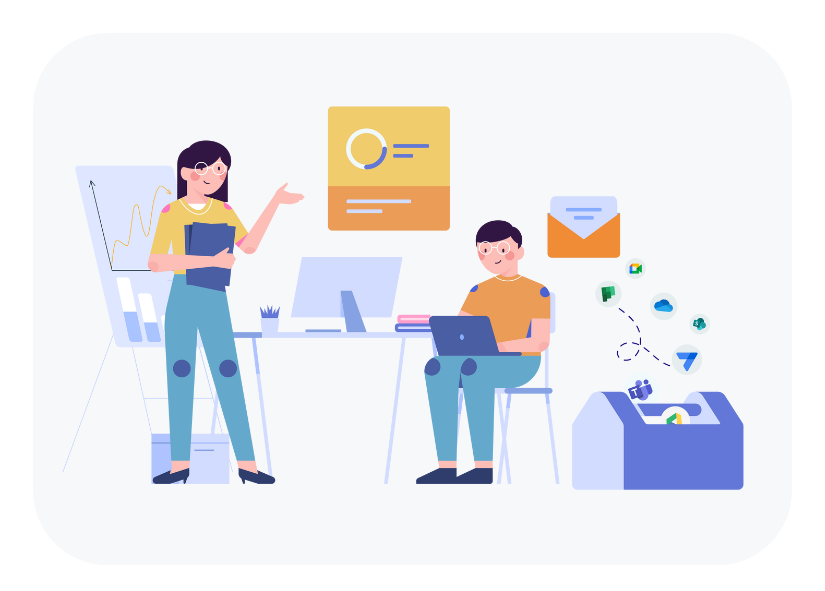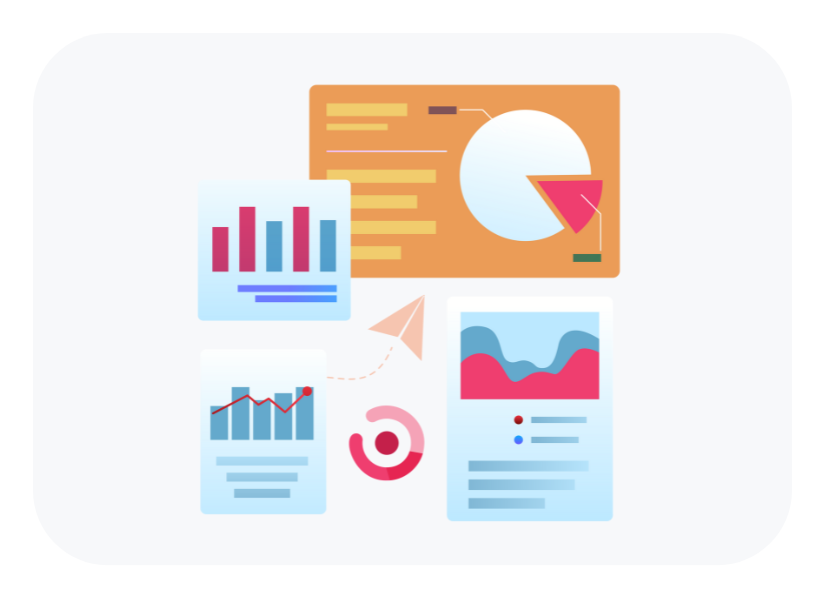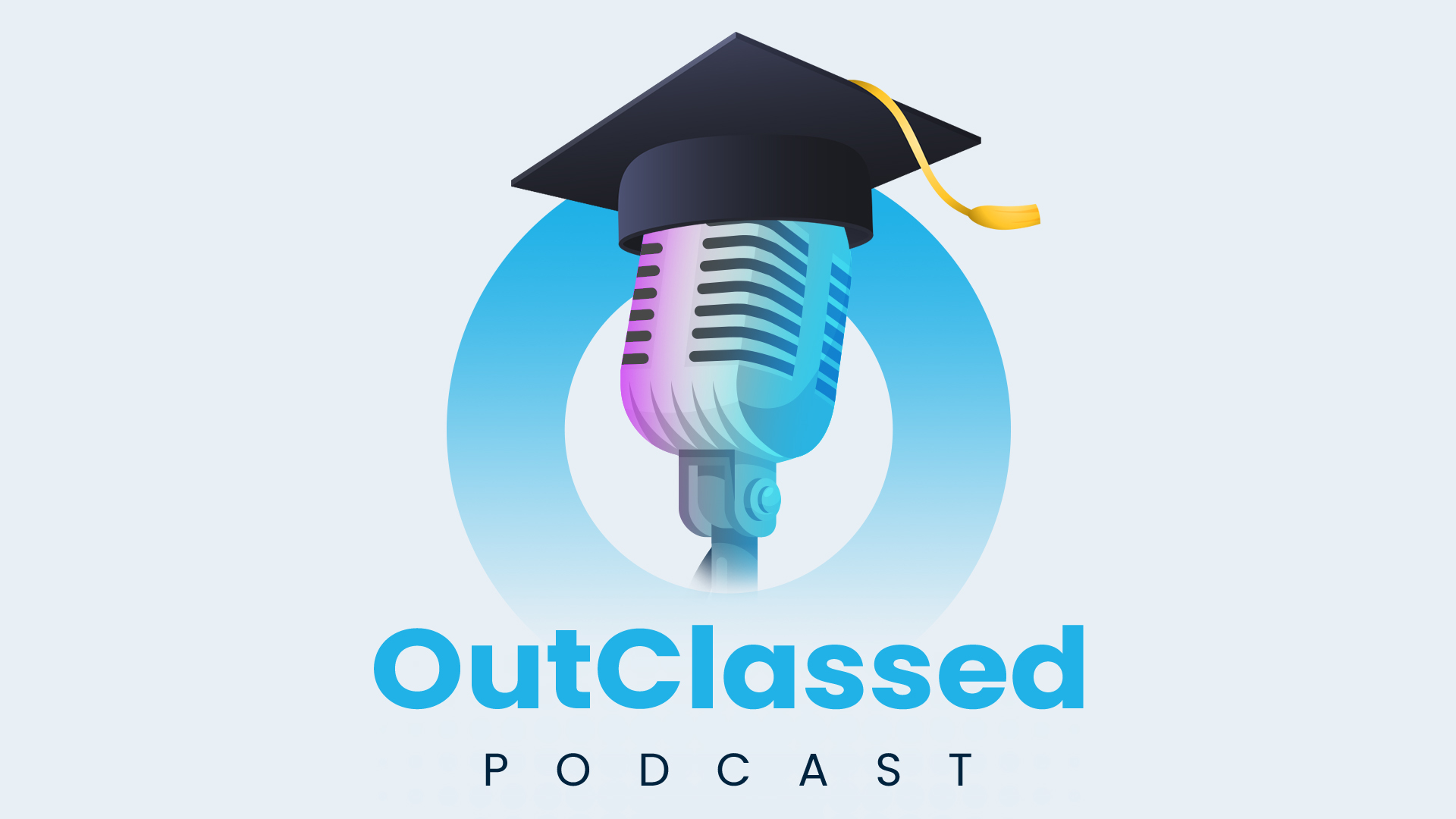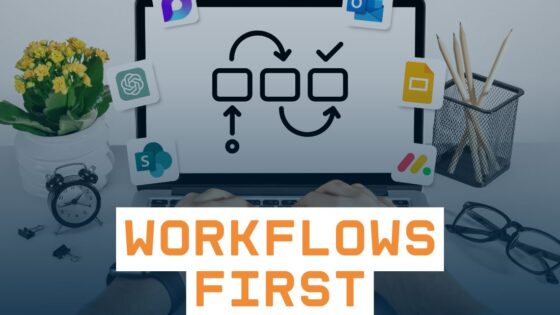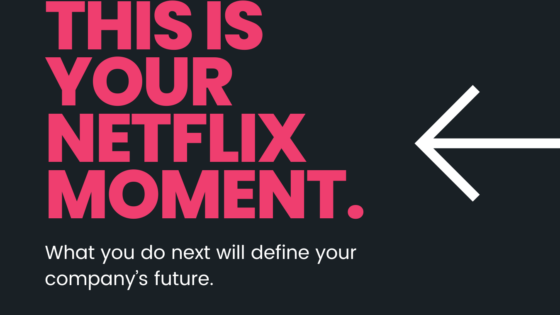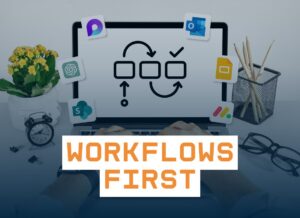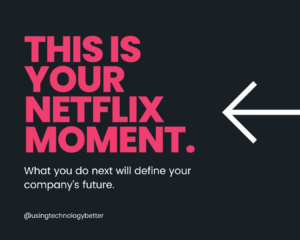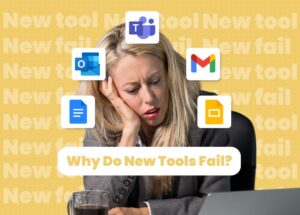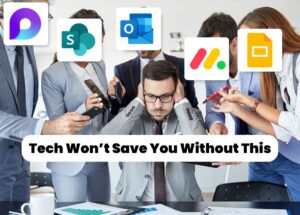Get Notified Of Future Episodes: Apple Podcasts | Spotify | Google Podcast | Stitcher | TuneIn + Alex | Podcast Addict | Podchaser | Deezer | Listen Notes
In this Episode:
To see all the OutClassed episodes go to utb.fyi/outclassed
Podcast Episode Highlights:
Coming
Resources and links mentioned:
Transcript:
Mike Reading 0:19
Hey, welcome back to the outclassed podcast. It’s great to have you with us again, then we’re in your earbuds appreciate you taking some time out today is it going to be a little bit different. We’ve got a special guest sitting in my son’s bedroom with me, who got Dethmer he is originally Dutch and working in a Dutch TV studio, but we’re gonna explain a little bit about that in a minute. And just gonna take a little bit of a different look at, you know, how do we know things are true and reliable and accurate in terms of sources, and pretty excited to have someone who’s been in the industry for a while, on the other side of that producing what we see. He’s got some insights for us today. But it’s great to have you here as well, Blake, good to see you again.
Blake 1:03
Yes, you too. It’s nice to be you know, post lockdown over here at the moment. So getting some freedoms back, hopefully it doesn’t, you know, turn around where we’re back in lockdown again. But it’s good to see you both sitting, you know, socially distanced apart there. 1.5 meters by the tape measure, I’m sure. Yeah, at least 40 centimeters between us. The joys of being in New Zealand. Yeah, yeah, that’s crazy. I saw a thing the other day I think it was a sports stadium or something, or just drinking beers and hugging. And, you know, it’s like nothing, you know, there’s the rest of the world in this New Zealand.
Mike Reading 1:38
That’s definitely how it is. So it’s interesting. I did a Microsoft event last night. And Trevor Smith from Melbourne was keynoting, at Microsoft employ. And he said that in Melbourne, I guess this is true. But the students on average this year 2021. And we’re in almost, where are we in October right now. 30th of October, we’re recording this. So schools basically got about six months of the year to run for us. And they said they’ve only been in school for two months, out of the 10. So that’s a lot of time not to be in the classroom. What a year it’s been hey.
Blake 2:16
Yeah, it is. And I mean, especially in high schools, a lot of primaries, were back for most of the year, just because of the you know, his primary school child’s home, you can’t go to work. Whereas secondary school, you know, even if they are in year seven or eight, you can probably arrange something. So you know, that that’s the difference. But the primaries have been back a lot, but it’s a strange year, and I was just talking OFF AIR about how, you know, you just had this sort of mock up day videos and stuff, and a lot of it’s around technology and remote learning and, and those topics, but it’s Yeah, it’s it’s been a year like no other. And it’s certainly, you know, I do feel for the year 12 this year, who are having to, you know, do their, their ATAR scores, and, you know, their exams and everything under these conditions, and being kind of compared I guess, to two other, you know, like, you’re being mapped against other generations, but you’re, you obviously didn’t get as much opportunity. So it’s an interesting spot for them to be in, but I think I’m on the, you know, the the other side of that is that, you know, if they can get through things like this and build that resilience, I mean, how many more skills have they learned in this process in terms of, you know, self moderating, and you know, you’re at home with your mobile phone and everything else, there’s no bands or anything like that. So learning all those kind of self moderation skills, and some people are going to thrive and flourish in that environment and really come out of it stronger. And I think, you know, unfortunately, a lot aren’t. So that’s been certainly interesting.
Mike Reading 3:40
Yeah, New Zealand government have just advertised for some officers to go around in the regions. I think they’re gonna hire 50. For New Zealand, that’s a pretty good number. I mean, the whole population in New Zealand 5 million with 2000 ish schools. So quite a number. And the I think 45 out of the 15 are going to be all around social emotional well being, and just offering that support to students in school. So definitely, we start to see a trend in that in that way. How are we gonna support students who are caught up in a digital world, but also caught up very much in a, in a world that’s changing very quickly in terms of school and law school? And all the implications of that? So yeah, quite interesting.
Blake 4:24
I completely agree, especially around the social emotional stuff. We’re seeing that in Victoria, where the government is sort of providing us like psychological services or certain amounts of services, depending on your school size, you know, as a standard programming the schools statewide and there’s a lot of initiatives happening around that. So I mean, we’ve spoken about it before that social emotional learning and wellness and everything is, you know, everything from us doing meditation, you know, every week to, you know, starting our staff meetings with just a moment of, you know, collection and you know, some Not meditation, but just more about focus and things like that is it we’re just seeing that creep in and with the research is so clear on this, that this stuff works. And I’m interested on how that’s going to, you know, be taken from from this generation and move into the workforce. And what that means for not just schooling, but also work and how HR departments will have to kind of grapple with this in the next, you know, decade.
Mike Reading 5:23
Yeah, it’s interesting. We were just talking at dinner the other night, Dethmer, how old is Miller? 11 years old. Yeah, it’s six for New Zealand, but like, you just went to a parent night where they were talking about devices.
Dethmer 5:38
they organized this sort of presentation. And I’m sorry, but I forgot his name. And I think he also might have been doing some of it. He wrote a few books about as well. It’s a shame. I don’t can’t recall his name. But it was it was amazing. Very interesting.
Blake 5:59
link that up in the show notes.
Mike Reading 6:01
Yeah. But he was just talking about the role that technology is playing on it on teenage brains and the psychology of it and the developments.
Dethmer 6:07
And actually, for me, personally, it was two hours of shocking numbers, and they were all negative. And so at the end, I sort of challenge them saying, because his purpose was to warn us and to make sure that we so my daughter hasn’t got a phone yet. So he sees what I think at this stage, one of the last kids without a phone.
Blake 6:31
gonna say 11 years old, it doesn’t have the only person without a phone probably.
Dethmer 6:36
in her class, he knows he had one friend who also didn’t have a phone, she just got a phone for a birthday. So now she’s the last one without a phone. But then, after listening for two hours to this guy going on about all these dangers that are actually yeah, around for kids using technology, and they’re not aware of, of what can happen and that the future is at stake. And so I said, Why don’t we allow kids to drink alcohol until they’re 18? But we give them this device that can harm them in so many different ways. Like, how is that possible? I just couldn’t, because there was nothing. In his whole presentation, there was nothing where he said like, this is why it’s good, that our kids have access to all these platforms, and all this information, and why they flourish because of it. It was only dark Doom horror.
Blake 7:40
Yeah. And it sort of has colors of the whole climate change problem as well, where there’s a lot of horror out there. And a lot of sort of shock and fear tactics. And and you you sort of think Well, okay, well, hang on, we need to figure out the happy medium, we need to figure out the how do we work together? How do we use the the best of you know, the technology without the downsides of the social media failings and everything else? And, and I think we forget sometimes that, you know, to liken it to alcohol is interesting, because, you know, that’s kind of something where we would prohibit the use of these technologies. But, you know, a lot of the time prohibiting the use is actually not in the best interest of the student who’s trying to prepare themselves for the real world, and has to grapple with all this stuff in the workforce, and, you know, deal with all those things. And maybe we wait, and we do that university, maybe that’s an option. But I think the problem now is the genie is out of the bottle, we all went into this with our eyes closed, you know, kind of just following along like sheep, and then we realized, oh, here we are at the destination, and we don’t like it, you know, I don’t think anyone at Facebook set out to be, you know, influencing elections and, and having these huge, you know, enormous breakdowns of society. And, and now, that’s kind of their focus is like, how do we limit our damage? I mean, I heard this morning that there were enabling features in Facebook, that they used in mind Meyer and a whole lot of other countries that they use as what they call Third World election. I forget the name like features, but basically, quell the social disruption after an election. So anything that can be viral, or that is particularly taken one point of view of particularly inflammatory, that they suppress that in terms of its algorithmic, you know, amplification, and that just got me thinking like, Why Why did they suppress that all the time? Why does that have to be a policy after an election, but that’s super interesting that they’re sort of treating that the US election as sort of third world. You know, like, this is gonna have unrest after the election, we’re going to have to be careful about the content that’s on Facebook after the US election, in you know, one of the strongest supposedly strongest democracies in the world that just shows how, you know, like you say things are at stake. And I’m interested to hear what you have to say on the topic as well and, and hear a bit about your your story.
Mike Reading 10:06
Yeah, I think that’s a perfect segue for what we wanted to talk about today, really, because we’ve been talking just like, you and I have talked about it a number of times, Blake about how do we how do you when you’re doing a research assignment as a student, or when you’re trying to look for fresh content to give to your students as part of a lesson plan? How do you how do you find out good content. Now, if you type in a search term into Google, you’ll end up with 100,000, millions of search results. And Google will track and measure everything we type and click. And the statistics are pretty shocking, actually, because 60% of all people only ever click result number one, two, or three. And they never even scroll down to see what is resolved for five and six, and 92% of people say on page one, and never ever go to page two. And so when we look at this in how students are doing research in terms of how we’re trying to find information, if you look at when I look at the elections as an example, basically, because Google tracks and monitors and their philosophy is let’s give you as much of what you want, rather than us just telling you what you should have. What that does is it builds a search bubble around us so that we just get more and more of the same information all the time. And so if you’re really limiting your search results to the first three, that come up, and then if Google keeps serving you more of the same, then what happens is you end up not eating from a wide variety of different sources, so to speak. So just be like, if you’re putting food on a plate, you’re just eating sausages every day and never getting a green. So we want to really get outside of that bubble. And really interesting talking to Dethmer , about that your your work that you’re doing in the TV studios, it’d be great for you to just tell a bit of that story. And we’ll see if we can pull some dots together and and for you who are listening to start to get you thinking and ruminating on this and then starting to think about search strategy. And how do you get outside of this search bubble that’s going on. But that was very interesting story. You’re telling the dinner about what you used to do and why you left the TV industry?
Dethmer 12:15
Yeah, because so I worked for the national news in Holland for seven years, and ended up as a video editor. So edit editing the news, and it was split up in in two departments. So you had the audio visual company, that that’s what I worked for. That’s who I worked for. And then the news desk was a different company. So they hired our facilities, we were all in the same office in the same building. And it looked like we were colleagues, but we weren’t. We were working with each other every day. And, and I was in an editing situation, it was after September 11, with twin towers. And they bombed a town in Afghanistan. But we didn’t have footage of that particular town. And at that stage We really were working, this was a long time ago, obviously, working from service. So computer service, we are all content on servers. And they said well, we I know we’ve got footage of rubber of the breeze and rubbish and with screaming women next to it. So why don’t just use that just take take that we haven’t used that yet. Wasn’t the exact town on what happened. But they just want to footage with for their story. And story that stage was there wasn’t there wasn’t much for press because there wasn’t much press there yet. And. And I went like Well, well, that’s, that’s wrong. And so I got into an argument with and then I ended up just doing what he told me to do. And then I got called by My boss, saying you’re you are just pushing the buttons and whatever they asked you to do. There are clients you need to do. And the other thing that I got upset about was our new station kept showing the planes flying into the towers over and over and over and over again. And I said I don’t understand why we keep broadcasting that footage because that’s exactly why and we’re helping with what they wanted. So we’re giving them what they wanted. And so and again, it was a useless discussion. And that’s when I decided to stop working there after seven years and came home and explained to my wife that I was upset about all this. The other thing was During that seven years of working for a news, I also started to see this pattern because before I started working for news, I wasn’t really, really following the news. Not like that. But then working there, you literally get everything and uncensored and all the raw footage and all the all the press messages and everything comes in. But I started to see this better than if we solve one problem somewhere in in the East in the Middle East, then, like one or two years later, just slightly off a few 100 kilometers that way, we started a new problem with a different name. And it just went on and on on peace talks in the Middle East. I don’t know if you’ve heard that sentence. That’s a good example of this. Peace Talks. And really, who cares? We’ve done it for how many years now? So I said, we’re what we do, we unplug the television. So I explained to live when I came home, but let’s unplug the television and just don’t watch anything. No more cable. And we stopped watching because I don’t want to see the news for a while. And until COVID hit New Zealand. That’s when I started watching news again. Because it was quite important to know what was going on in the country. So there was a first time and I chose to get up every morning at six to watch breakfast news, because there was the type of news I could digest. And the way they handled the news and talked about it with a bit of joking around and a bit of an but yeah, for over 20 years. I just didn’t watch any news and, and didn’t read any newspapers and just completely ignored everything that happened. Oh, yeah. And when Trump got elected, I started, I started watching because I was convinced he would leave in the next and in the next two months after he got elected, then that didn’t happen. And again, I lost interest and now getting this is scratchy. I’m not interested in it. So stop following it as well. But yeah, for me, funny enough for work for somebody who’s worked for news, I’m pretty skeptical.
Blake 17:12
suppose you’re, you’re watching it so closely all the time. And I think this is why it’s great to talk about talk to people who are in those industries, because all the varnish is off. Now you know what, like, when you when you work in it every day, you know, like, like in IT you we get brand new IMAX and we unbox 28 of them, we’re no longer excited about a brand new computer, you know, it’s the same work in the news industry. You’re, you’re you’re seeing it every day, etc. you can see behind the curtain a little bit. So I’m interested like, are you thinking about? Okay, you’re seeing that process. And obviously there’s a pragmatic need the news, you know, outlet to like, boost their numbers, and, you know, they need some visuals to go with what’s happening. And they have to find those visuals. So the sort of pragmatic reasoning is that the thing that was driving a lot of this sort of I wouldn’t say disinformation, but a lot of the kind of inaccuracies that you were saying was it was it pragmatic reasoning of people just trying to keep their jobs and trying to, you know, do just that good?
Dethmer 18:11
Yeah. So when I started working for news, we were the news broadcaster from the from the nation. And then in that time, maybe just before it aired, when I started there, they started the commercial broadcasters in Holland. So they commercialized because it was only public television government. And they commercialized it, they started doing us and they instantly started adapting an American style of news broadcast broadcasting and it’s all about numbers how many people are viewing how many viewers and just getting views and billboards with your your that sort of stuff advertising news as a as a TV show. And before that, it was just people in the nation would tune in to see this guy with a straight face tell them what was happening to their country. But then when when he got commercialized it sort of Jake Johnson has a good song where he says they put music to the news. That’s that’s where it went wrong. Yeah. And so that’s sort of what happened there. And then our, our station, the old fashioned government, nation, news broadcaster started to look at them because they felt we’re losing viewers. What are they opening with? Maybe we should open with it? And they really and and it’s sort of And so yeah, I think that’s where it’ll when it all went a bit just got commercialized. and the other thing is that politicians and we’re starting to use the news because technology would allow them the Everything that I found out around the time with the towers, is they had troops on the ground in Afghanistan. So they showed footage of bear Marines jumping out of planes. And then a month or a couple of months later, it came out that there was footage of a training exercise over the states. And they they released it as saying, We’ve got men on the ground, like right after it happens, and which wasn’t true. So all those things make you go. Okay. What do I am i watching Hollywood blockbuster, or is this actually effect?
Blake 20:42
So in that case, was the news that the footage of those men jumping out of the plane was that influencing what the government was saying was actually going on? Like, was that actually feeding back the government saying, hey, we’ll just say we’ve got troops on the ground? They’ve already shown it.
Dethmer 20:55
Exactly.
Blake 20:56
Wow. Okay.
So we’re using the news to play there, that narrative yet to work a narrative around what’s what’s happening. So actually, what’s happening? So what if, you know, like, let’s look at it from a devil’s advocate position, what, what about people who sort of say, Well, okay, so, you know, they need to use some footage, like, of course, they’re going to use, you know, stock footage that they’ve got on file, like, we just need to accept that and be be mindful of it and be skeptical of, you know, understanding that they’re just using a visual to aid what they’re saying that that visual is not actually 100% accurate, like, does that actually matter? What What do you say to that? Like, what’s what’s wrong with that?
Dethmer 21:36
I think that’s a good example of how teenagers interpret what they see. So teenagers that watch a video on Facebook, their brain instantly translates that as reality. So for them, that’s pretty much a person standing in the room saying what they’re saying. And it can be completely false, but for them, digesting that information, and I think as adults, whatever came through the news, we just accepted that to be fact. And for me, personally, it’s hard to start approaching that information as okay yet it could be stock, it could be old footage, I would still and it might make me old school, but I still would expect news to be fixed. That’s news. If it isn’t, you can throw it in a late night show or news and affairs, whatever program. But at six o’clock or eight o’clock when the Big Bang goes, bang, and there’s a guy with a straight face whenever he’s showing us that happens.
Mike Reading 22:43
Yeah, kind of interesting. When you lay that on, people pushing agendas on websites, Wikipedia, like we bring this back to the classroom, like how do you know, when you’re forming an opinion? Even when I was teaching history? In Australia, there was like the debate going on about the Holocaust and didn’t even happen. And there are plenty of websites out there with factual accounts of what disprove that the Holocaust even happened. And so we’re using that as stimulus material for the students to go or how do we how do we distinguish one person’s fact? If you want to put it that way? to another person’s fact? No, you know, this is my truth. So the truth is truth, right, but what’s true for me doesn’t necessarily be hold true for you. So I think we need to like being aware is four out in a sense, I got to talk to Americans every now and then being in a fairly multicultural town that just grew up on CNN. And suddenly, I didn’t realize that some of these American news shows are politically leaning. So of course, they’re gonna show anti Trump stuff, or of course, they’re gonna show pro Trump stuff because that’s their political bent. And that’s one of the things they’re there for, is to propagate that message. And so just coming back through and just being blinded to it, I don’t even know, saving New Zealand, there’s TV channels that are very left leaning, and then the news and so on, show more of that lifting, to balance out the right leaning TV shows and news. And so if you wanted to look at it just purely in politics, you just need to be aware of what what is behind it, and what are they trying to push and then and at least be a little bit aware of that so that you can go Okay, well, where’s, where’s the bias in what I’m saying?
Dethmer 24:24
Are we so we talked about this before I go over dinner the other time? And will you say so you’ve got your truth and you’ve got your truth and you’re sort of making that sound like that’s okay you can do it truth is like a religion. So you’ve got your religion, I’ve got mine, but with this, like social stuff, like social things that are happening in our society, political stuff. If there’s too much disjointed opinions of what’s true and what’s what isn’t that what is what would they do to society, like if everybody ends up with their own little made up, you’ve got Millions of people with their own opinion about what actually is happening. Yeah. Well, how is that a conundrum
Mike Reading 25:05
we find ourselves in right now. So, I mean, if you’re, if like I used to teach science and before I taught history in geography through a weird set of circumstances, and we would be teaching a particular type of science was wasn’t necessarily the full science. So we would teach things like atomic theory, which talk about the atom structure and how atoms are made up and the energy that’s in it. But we would never go to look at quantum physics, for instance, it says that a particle can be both a wave and a particle at the same time. So you can, it can change the type of energy for 90% of the population would never have heard of quantum physics and that fringe element of physics where it can, yeah, the particles can change their nature with their observed or not. So students would go through learning a former science, but not necessarily a holistic science. And then you look at things like climate change. And so we teach a version of climate change to our students. But we don’t teach the full version which
100% there is , and I think you really go through, and you look at COVID, again, looking at facts of what does it do to the body and from a medical point of view, there are people on both sides of the fence, both sides, like credential doctors, professors, biologists, leading in their field who they don’t agree, but sometimes what we hear is one side of the story as well. So how do we how do you a find that information, which is part of the problem, because again, if we go back to that Google analogy, you’re always clicking on the same thing, and you’re getting served over more of the same. And so you don’t start to see this other story or don’t start to hear it. But then I thought of that problem is to is how do we get our students to be inquisitive enough to ask second, third, fourth, fifth questions, where they want to dig into some content and learn about it rather than just taking something on face value?
Dethmer 27:01
So how do you how do you reckon this is different to 34 years ago? So what what so with feeding our children information? So your four years ago, you would go into a classroom? The teacher would say this, and this and this? And that was it? And he would go home? You will watch the news? The old guy with the stranger? Definitely, yeah. How is this? What so because it is changing? There’s a massive shift in this? Because of it. Yeah. How would you word it to compare it to 40 years ago?
Mike Reading 27:34
Blake, do you want to jump in on that?
Blake 27:37
Well, I wasn’t around 40 years ago. So don’t let the gray hair deseve you. But the look, I think from from my perspective, there’s sort of a few things that I want to pick up on. The first is the conflation of two of two ideas of like, reference information and news. So when we think about, you know, the example of a Google bubble, if I search for something like how to, you know, make a cake, you know, I can search for that reference information, there’s a million ways to make a cake, and I can filter through and I can just look at the first page. And the thing is, Google is so good, that they’re bringing me that stuff straightaway. Now, if I think back to the start of the internet, where you had your search engines that weren’t quite as good, you know, your visitors and your dog pile and all that stuff, you’d have to go through and actually look and find that that’s not baking a cake, that’s something else, you know, and keep going page two, page three. And I think part of the issue is Google’s gotten so good at giving us exactly what we need in terms of a reference piece of information and understanding that baking a cake means you want the recipe, you know, it doesn’t mean you want some story about someone who baked the cake in a book that was published in 1980. And so figuring out what your actual intention is, you know, using big data and AI and all that stuff has gotten so good that we’re able to get what we need as a reference point quickly. The problem has become is when we search for, you know, is climate change real. We get news articles. And news articles aren’t based on you know, like, it’s not an article that a professor who spent four years in Alaska has written up about his his observations of the sea ice melting. It’s like someone grabbing a snippet that meets their narrative that, as you said, is incentivized by the wrong incentives, the wrong incentive being shock or in fear. And I think, you know, when we look at why we watch the news, I think that’s the critical question is why do we watch the news? Why do we want to see things on Twitter? Why do we want to turn that TV on and have either the boring guy or the super exasperated guy, you know, why are we actually wanting to tune into that and there’s a fantastic podcast episode on this exact thing by Stephen Dubner who does the Freakonomics podcast really awesome podcast if you haven’t heard it, he’s been doing it for years as well before podcasts were cool. And he says Why do you really follow the news and he unpacks The actual unreal underpinning, I guess, process or or formula that use users to capture our attention, why are we actually motivated to watch it is there’s a lot of things in my life, I’m not motivated to do. But for some reason, I’m motivated to watch the news. And it’s because of that dramatic narrative that’s built around it. It’s because of the, I think he uses the word like, suspense and experience, you know, getting that sort of catch and release kind of feeling. And we, we crave it, we actually watch it for entertainment value. And that’s what we really need to start thinking about his news as entertainment. That’s what it is whether it’s formal or not. So yeah, and that’s kind of I do
Dethmer 30:45
I know quite a few people who literally got the depresed, and couldn’t sleep because of what they saw on the news. 100%. So then you could you could you could say, it’s like a scary movie and keeps you awake. But I think real again, that’s Well, yeah, is it but that’s the news is next level, it looks like Hollywood, but then it could still be real. And if all this stuff isn’t happening to the world, and I just had a baby, or my child needs to grow up in this world. But then 10 years later, after you had that meltdown, nothing happened. Everything’s still the same. And so and then you wonder, why did I
Blake 31:33
exactly and this, and this is where he talks about that podcast, I listened to it a long time ago, but it was something along the lines of so someone says, you know, a car bomb goes off in Syria, all these people die. And people feel emotive about that. And I’ve always thought of that, as strange like to watch the news and feel like I can understand how it happens. And I certainly feel the same emotions, but to watch the news and see that, you know, people died in this place. But then if you just look back and zoom back and look at the macro and say, well, hundreds of 1000s of people are dying from famine, millions of people are dying from just plain pollution, you know, but we were not sort of putting the same amount of emotion into the millions of people that died of pollution this year, versus someone that got killed in a car bomb that I saw the footage of. And so in that sense, like, it’s about what is put in front of us and what we value, as you know, I guess, important enough for our time. And I suppose that’s where the news anchors have dropped the ball a little bit, in that their incentive isn’t for giving us the most important information. That’s sort of the data driven information that vetted the stuff that matters at the macro level, they’ve sort of that everyone’s going for the narrative, everyone’s going through the experience, because that’s the thing that is going to affect you that is going to make you feel bad that is going to make you not sleep at night, and force you to tune in the next day and watch that daily COVID briefing. Because it’s super, you know, pertinent to you. And with Coronavirus, you know, it actually is so you know, we it’s in our communities, but when it’s reporting on like he’s like peace talks in the Middle East and things like that. What effect can I possibly have on that? Do I need to be super informed about that particular topic as a, you know, an IT manager in a school or business owner in a software company? Probably not. And the effect I can have on that is very limited. So that’s, that’s kind of how he draws the conclusion of it becoming a thing about well, actually, we just seeking that out as a form of entertainment. And our brains are kind of not sure how to process that when it when it comes to you know, the horror of it all.
Mike Reading 33:35
Yeah, so if you bring this back to education, it’s interesting. My son just finished a assignment on climate change for social studies. And just looking at the the information, he was able to find on that. The questions that were formed around it, were very interesting. But as the students are researching this stuff, and as they’re learning, they’re forming a worldview. So they’re forming a view of the world and how the world works and how the world operates. And I can guarantee you next year in year 11, biology classes all around the world, the subject that they’re going to do when they do bacteriology and virology is it’s going to be COVID. And so the information that you find about that is going to be very interesting, and you’re finding that sort of thing. So
Dethmer 34:22
you thought climate change is mixed up where you can find out about climate change, but I think in 10 years where you can find about COVID they’ll be interesting. Yeah, yeah. But how far apart those extremes will be?
Blake 34:36
Yeah. Did you watch the news? Trump Trump told everyone COVID is over, didn’t he?
Dethmer 34:42
Yeah. He said they’re just testing too much. doing too many tests. That’s That’s what he said.
Mike Reading 34:53
Yeah, that’s right. So
Blake 34:56
there’s not only a contamination of the News entity. There’s also a contamination of what, what leaders are telling us as well. And so, you know, used to be able to trust the prime minister to a degree or trust the president to a degree. And now it’s a lot harder to believe that and I think part of that is we’re more informed, and that we can Google things. I want to know the answer to any question, I can Google it and actually find a source of information. And sometimes that’s going to be not the same viewpoint as what the what the Prime Minister has told me, sometimes there’s going to be research which contradicts the norms that we live in. And that’s where I think what we have to do is build like, like, they were saying, just to build some commonality. So there’s no such thing as truth, objective truth doesn’t exist, you know, I can watch a person follow over in the street, and you say that they got through, they just fell over, we both have our versions of what what I saw, even though we both physically saw it. But I think what we need to do is both agree that the person fell over. And that, you know, there might be some, you know, agree to 90% of the facts, or 90% of the situation, rather than those last 10 10% and squabbling over that I think we can have our you know, it’s important to have debate and disagreement and views. But if we’re going to come to consensus on things, you know, I think, from my, in my mind, like, we have to be informed and, and have, you know, a good way of searching and finding information and digesting information, but also being able to figure out what to trust?
Mike Reading 36:30
Yeah, I think there’s some strategies that teachers and students can use around that. So for instance, if you’re doing a research task, look for three different viewpoints from three different authors. And, and have a look at that. So that at least you’re getting this, you know, well balanced, well rounded.
Dethmer 36:50
Just click in your Google search result, just straightaway click on six.
Mike Reading 36:55
Yeah, it’s
Dethmer 36:56
not one, two, or three now. Click on this number six at the bottom and see what’s there.
Mike Reading 37:01
Yeah, no, I’ll just use a demo. You might be
Dethmer 37:03
surprised when you find Yeah.
Mike Reading 37:06
Yes. Different surgeries, different search engines, search incognito mode, there’s, there’s different things you can do to
Dethmer 37:16
make a difference when you use one of those. So I use VPN to be able to watch on dutch programs here in New Zealand. So VPN service changes your IP, where Google thinks you are, would that make a difference?
Mike Reading 37:31
Yep, can do. Because you get location, those results are located here?
Dethmer 37:35
Because they’ll be interesting. As I just watched the documentary, what is it? Yeah, and then how climate change if you typed it in? And depends on where you are, what the results is. So with maybe with the VPN with the IP address, changing your location, you could experiment with what you find if you are in Amsterdam, or in New York, or in Rome?
Blake 38:04
Yeah, absolutely. And I think like, as well, it’s also about processing what you find. So a good practice, I’ve always thought and you know, like, often schools have problems with extreme left students that, you know, really vehement about rights, and things like that, and the you have extreme rights, you think we should just get on with it. And, you know, this is a common thing that happens to students is they get polarized, like the rest of us, and their parents are particularly polarized, and they bring that to school and with all their prejudice and everything else is to say in class, okay, I want you to go away, okay. You’re the guy who thinks that, you know, climate change is fake, I want you to go and argue that it that it isn’t, I want you to debate you’re gonna stand here and debate from the position that climate change is real, we have to do something about it. And I want people to think it’s real to go and stand on the climate change is fake, you know, soapboxing, and argue that point. And to me, that’s what I think debating like the age old practice, for this purpose of like trying to find and disseminate truth from information. So you know, I think that’s a good practices to go and look at, well, what if I’m going to argue that climate change is fake, which I don’t believe I’m going to have to go and find all that information? And then getting your debate the point? Not necessarily, the truth is that you can form your own opinion in that process of reading all the articles and looking at the news sites and deciding if alex jones is a reputable, reputable source or not. And, you know, trying to work through that that process, I think, particularly on young brains, I think that’s a that’s a really helpful thing.
Mike Reading 39:39
Yeah, I think we talked about that in a previous podcast where one of the best sessions I ever had dealing with student conflict was where I just could not get the students to stop fighting over a long time. And so in the end, I said, there’s going to be discipline on this, there’s going to be school detentions. If you guys can’t solve it, and they couldn’t solve it. So in the end, you have to present to me the other person’s opinion as why they’re right. And if I don’t think you do a good enough job, convincing me of why the other person is right, then you’re gonna get the detention because you didn’t put enough energy into it. And at the end of it, they sat down, and they understood each other’s point of view. And they came back and said, problem solved. So, yeah, it was it was a leadership principle, I picked up out of a book once and I’m gonna try it on these two because nothing was working. And they’ll just add each other all the time, it was just a different, you know, you get an opinion of someone and you Yeah, you just follow through same concept, just arguing from the other boy, academics
Blake 40:41
use that use that a lot in there. You know, when they debate on stage, they’ll say like, okay, so let me try and take your argument, and and tell you what I’ve heard. Yeah, and what I think your argument is, and often, you know, nine times out of 10, it’s not actually they’ll say, No, no, no, it’s not that I’m telling you this. And I think that’s, that’s important to recognize, and just for students to see that, you know, repeated over and over again, that what I heard was not actually what you said. And what my you know, concern was wasn’t actually the thing that I needed to be concerned about, because it was something else that can help I think, you know, as forum just a bit of a, you know, pump the brakes a little bit. Just slow down a bit of rationality bit of reasonability, into into the conversation.
Mike Reading 41:24
Yeah, totally. And then there’s other strategies you can use as a teacher, and we just didn’t, one of the things I used to do all the time was make the students use advanced Google search. So when you go into advanced search, you can say I want to have these words. And I want to exclude these words, and I want to look at resources from this region or written in this language. And then I’d make and take a screen capture of it. Because the my mind, the way that it would work was back in the good old days, we’d go to the library, and we’d read this book and that book and that book, and you have to read a lot of sources, and process and assimilate that in your brain. Before you write your answer on a piece of paper, right, you wanted to have that pretty well framed up. Because as soon as you start writing there, there’s not space for you to just go, I’ll take that paragraph, move it up there, like we can do on a computer now. So we used to think differently, and process and learn differently. And now we’re in the digital world, which is like, click on a link, copy and paste, change a couple of words. So it’s not plagiarism anymore. And so the students are thinking they’re not being critical, they’re not wondering. And so by setting up a requirement where they take a screen capture of this, it forced them to think about the content and the topic, and what do they want to find? And what could be some things that they want to exclude out of that. And so and then add that as their evidence as part of their assignment. And I’ve given marks on that as well. So, yeah, there are ways for you, and I guess, like, so wrapping this up a little bit. As a teacher, one of the reasons I wanted to have this conversation is I think, like our students need opportunities to think differently and be challenged in their thinking. And as a teacher, I think it’s really important that we set up opportunities for our students to research and ask the third and the fourth and the fifth question, not just answer the question that’s being put in front of them. I see that with my son all the time. It’s like, Why Why don’t you wonder about this stuff? Like, I’m wondering about what caused that? And, I mean, it’s my personality, I question everything anyway. So I’m terrible with these things. Because I’ll be like, I’m questioning COVID. I’ll question climate change, I’ll quit. Not because I don’t believe in it. But just because why would I just answer what’s behind that?
Dethmer 43:35
Do you recommend some negatives generated generation sector distribution because of the information being available? That they just take it as fact and go like, okay, top result Google boom? Yeah, that’s what that question answers.
Mike Reading 43:50
Yeah. feeds that, and they don’t question it again. Yeah. What would you say? You know, like, like you said before, like, we can’t remember the exact term you use. But basically, like, we have some of the most educated we’ve ever been, in terms of how much information we’ve got. But I think it’s almost the opposite, because we’ve got so much information or almost naive
Dethmer 44:10
views, right? Yeah.
Blake 44:12
We were drinking from the firehose, you know, to answer your question of 40 years ago, what’s changed is, the teacher standing at the front of the room was the arbiter of all knowledge.
Dethmer 44:23
same as the guy on the news.
Blake 44:24
That’s Yes, that’s right. Yeah. But in reality, that was still not telling us full truths, you know, in like, the science example, you know, the, whatever it may be gravity is a force, which we know is not actually the truth anymore. Like these, these kind of things. They knew then, but it was it was was easier. It was a more convenient like, like getting that footage and putting it over the video, it was more convenient to say, well, let’s just teach them this kind of concept of gravity being a force and it’s kind of a simpler way of understanding it. Rather than actually going into relative relative theory and all this kind of thing. I’m trying to call it you know, blow their minds. And it’s the same thing. And I’ve spoken about this on the podcast before, when I went to school, I didn’t know how to study, I really didn’t, because studying is about understanding what the learning outcome looks like. And schools getting really good at doing this are about learning intentions and success criteria on the board of every lesson. And that’s a really good process for understanding what you’re supposed to get out of this class. But I thought, when you learned kinetic energy, you’re supposed to understand the entirety of the subject, you understood kinetic energy, the theories of it, how to apply it, if not, what you need to understand is these three formulas and how to apply them. That’s it. And so that’s where, you know, the learning intention, the success criteria really helps students, unfortunately, I think longer term, what what effect that has is that a lot of students, not all students, but a lot of students lose that that curiosity and that wonder, and they turn it into a sort of a procedural thing of, I know, I know, the terms of engagement here, I know the rules of the battlefield, you know, I’m not being challenged any more than just, I come into the classroom, I look at what the outcome has to be, and I learned that exact thing and I move on. That’s the new, that’s the new challenge. Whereas I think 30, 40 years ago, the challenge was, I’m interested in this topic, I want to learn all about it, I want to find more information, I want to go to the library, I want to research, I want to find these other things. I think in a modern curriculum, there probably isn’t time for that. And it’s certainly probably different in New Zealand, with a very different structure. But in a in a rote learning curriculum, there may not be as much time for that, because we do cover so much. And it is so prescriptive. And, you know, there’s arguments on both sides for that. I mean, I think prescriptive curriculum can be good, because it teaches us we cover more stuff. But you know, having wonder and curiosity is probably better for those softer skills as 21st century learning skills where we have to challenge our thinking on things and really learn more widely and deeply about topics that can then help us, you know, transform our understanding of other topics. So there’s there’s benefits, I think, to both ways of looking at it. But to go to your point about 40 years ago, I think the biggest difference that we have now is the way in which information is served to us is done in a very monolithic way. And that is kind of one place you go, you go to Google, if you go to Snapchat or tik tok, or any of the other things, they’re all driven by algorithms that one one or two people wrote effectively, in our very small team of people wrote, so when you go search for things, how’s that search algorithm written? It’s written, you know, by a team of people, it’s built over time. But ultimately, it’s one monolithic algorithm. And that’s serving you the same results, you know, under set certain set of rules. So I think in the old days, we had to use our brain as the algorithm. We had to go and seek out information independently, which of course, led us to different conclusions.
Dethmer 47:53
Yeah, I also think maybe there was more debates, like I thought it was interesting how you say you get your students to debate certain things. I think that’s really important that students keep debating and keep talking, and keep sharing their opinions in real life. Not on Facebook, not on a platform, but just yelling at each other.
Blake 48:18
In real life with its consequences, right. We’re all keyboard warriors. And I’d say that’s easy to do on Twitter and Facebook.
Dethmer 48:24
Yes. That’s what I mean. And I think Yeah, because that also it because it is totally different. Sharing your opinion in a post on Facebook, then talking to friends about it, face to face, and just and then see what see what comes back. Because I feel personally that’s how I and shaped up to be who I am today is by talking to a lot of different interesting people hearing what they’ve got to say, how my questions everything, and I find that very interesting. So I’m interested to see how so how do you how do you question this or that? And how do you question that and then I take that home and and I think about it, and maybe I’ll take one or two pieces, and I go to the next person who says the complete opposite. And then from all that information, and that’s how I tried to raise my daughter to create that way you create your own reality, we all create our own reality. And I think so how in social media terms to keep it organic, and and real, that you keep connected to the real world by sharing and tapping into literally tapping into people their ideas and thoughts in real life and have those conversations
Blake 49:40
get out of those echo chambers. Yeah, yeah. So just to wrap up here a little bit mindful of everyone’s time, but what would your sort of thinking be so you’ve obviously been in the news industry have seen what what what’s happened with the commercialization and you know, the wrong incentives and all that. Like what what do you see is the remedy You know, if we don’t want to be that guy at your child’s school, you know, just just talking doom and gloom. Is there? Is there something out of this that you see, you know, we need to do a better job at and where where do you think we can fit in as educators? Like, is it what what what’s your take on that?
Dethmer 50:14
I think. And also, again, bringing it back to how I tried to raise my daughter, and maybe real small, I think we need to keep having the conversation. I think that we that it’s important, we show them that we literally verbally keep the conversation going. So that the Google and, and web and all that information that is available to us that’s there. And we can we can tap into that. But then turn around and have that conversation about what you find in person. I think that’s that’s I think that’s important.
Blake 50:53
percent 100% agree. Unfortunately, we don’t disagree on that one. robust debate if we don’t disagree,
Mike Reading 51:01
yeah, I think it’s been a really good conversation. Hopefully, for those of you that are listening and stay to the end, you’ve been inspired to maybe create a different learning environment where you can challenge some thoughts or just create a scenario where he gets some discussion and some debate, obviously, age appropriate to whichever year level you’re teaching in the school that you’re in, but also just thinking about search strategies. And, and looking at some of that, if you go to using technology better.com. And do a search on our website for search strategies is a blog post that shows you step by step, how to use advanced search and so on as well. Yeah, it’s been really good to hearing just from the from your side to what the what the media does, and just just being aware of it, because you kind of hear stories about it here and there. When I heard that story is like, okay, so you really do need to be aware of what you’re listening to and what you’re believing and just having that questioning, the ability to question.
Blake 51:57
Yeah, I think particularly within us if there’s one thing that one in parting advice I would leave is like, having heard that podcast, you know, in shaping my worldview about news was, was that we, if we really be honest about why we watch news, it’s it’s a form of entertainment, it’s a form of drama. It’s to find out what’s going on in the world. You know, like the gossip that’s going on with our friendship groups, we we crave that as humans, and it’s been this normalized thing that no, no, no, we should put time aside for the news. Because that’s a very, you know, civic thing to do. And we should be informed about our environment and everything. But actually, that’s, I think, a little bit of a misnomer. I think the reality is we watch it because we want to because we’re entertained by it. If we weren’t entertained by it, we wouldn’t watch it. I mean, there’s a million things we should do for our civic duty that we don’t do. So. I think Yeah, being honest about why we watch the news. And also interestingly, like, I don’t watch the news. I haven’t watched the news for years. And I’ve only just started getting back on like you say with Coronavirus and those things more on Twitter and those areas to see, you know, the live numbers and the snippets but but there’s so much, you know, we can do as well about just living our own lives. And we hear like we hear so much information. So much of the news throughout work colleagues and our family and things that it’s interesting and having not watched the news. I haven’t missed a single world event. You know, there’s been nothing obvious. I’m sure you found out of the same but I was surprised by that. I thought I you know, we’re gonna miss things. But we don’t. Anything that’s important enough surfaces up we find out about it. And you know, of course we can Google it and find out more.
Mike Reading 53:35
Yeah, very good. Excellent. Well, I appreciate you coming on. If you want to check out D’s website but a great website Mondayproductions..co.nz code on New Zealand based so Monday production code opens. It’s still in the in the video industry but just shifted his focus on the other things, which is great. And yeah, I really appreciate you guys spending your time with us again this week and we’ll catch you next time on the podcast
Transcribed by https://otter.ai
